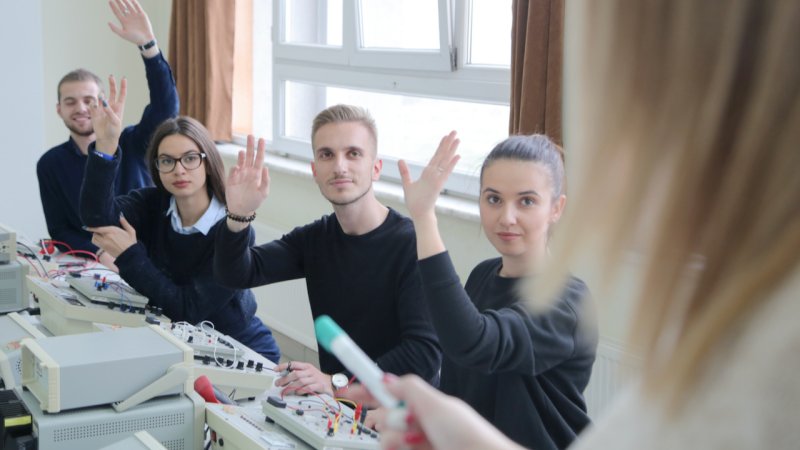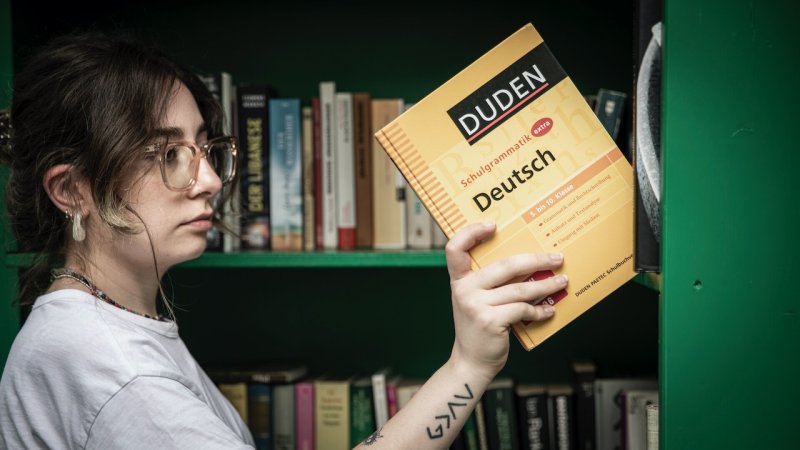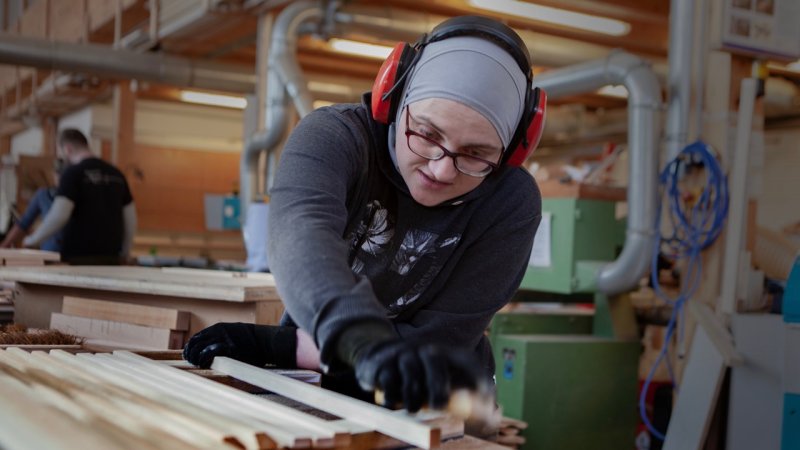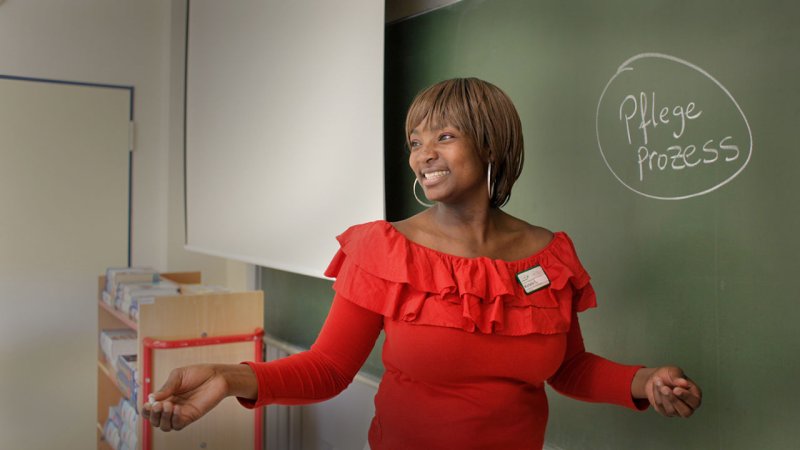
Finding a job or vocational training programme in a new country is far from easy. However, you can benefit from various support offers from the Jobcenter and Employment Agency during your search in the German job market. These programmes can, for instance, help you search for a job, prepare your job application or provide you with a voucher for a preparatory training course to improve your chances in the job market.
In this chapter, you will learn about the types of support available and how you can seek help.
If you are unsure which job is right for you, there are career counselling services or various tests you can use to find the answer. To learn more about these options, check out our chapter "How do I find out what is the right job for me?".
If you already know what type of job you would like to start, you can seek direct help to find a suitable position in your desired profession.
You can find offers of help, for instance, at your local Employment Agency or the Jobcenter. You can find the address on the website of the Federal Employment Agency and make an appointment for a consultation session.
You often need certain application documents, such as a cover letter and a CV, to apply for a job. If you need help preparing your job application, you can take a course to learn how to write a successful application. You will also learn what to watch out for in a job interview, for instance, how to answer when the interviewer asks you tricky questions.
You can find support offers, for instance, at your local Employment Agency or the Jobcentre. Check out the website of the Federal Employment Agency to find the addresses.
In case you receive unemployment benefit I or "Bürgergeld" or expect to become unemployed soon, you can receive a so-called "Aktivierungs- und Vermittlungsgutschein" ("activation and placement voucher"). You can use this voucher to participate in training courses such as job application coaching ("Bewerbungscoaching").
To find special offers designated for refugees, check out the section "Are there special offers for refugees?".
You are required to know certain German words and phrases to work in many professions. You can learn the words and phrases relevant to your desired job by attending occupational language courses. To learn more about these courses, check out our chapter "German for work".
If you are currently unable to work due to mental or health issues, you can, under certain conditions, take part in a so-called "berufliche Rehabilitierungsmaßnahme" – or "Reha" for short. You can learn more about these professional rehabilitation measures on the Federal Employment Agency (in German) and German pension insurance websites (in English). Please note: As a rule, you need a valid residence permit to benefit from professional rehabilitation measures for free.
To learn more about the rights of people with disabilities in the workplace, check out our chapter "Living with disabilities".
You can also seek advice from the "Ergänzenden unabhängigen Teilhabeberatung (EUTB)". To search for a counselling centre nearby, visit their website, teilhabeberatung.de.
If you have obtained a school or professional qualification abroad, you often need to have it recognised in Germany. In the recognition process, your degree will be compared with a similar degree in Germany. If your degree is recognised as equivalent to its German counterpart, you will be issued a certification of recognition, which gives you a better chance on the job market.
Anyone with a degree obtained abroad has a right to the recognition procedure, regardless of residence status or nationality.
You can learn more about the recognition procedure in our chapter "Recognition of foreign qualifications".
If you have already gone through vocational training or gained much professional experience but still cannot find a job, one option is to take on further training to increase your chances of finding a job. Talk to your local Jobcenter or Employment Agency; they can issue you a so-called "Aktivierungs- und Vermittlungsgutschein". With this voucher, you will be able to take part in a training course free of charge. To learn more about these vouchers (in German), visit the Employment Agency website.
The "Stark im Beruf" programme specifically supports mothers in their job search. The prerequisite for participation is "immigration background", i.e. you or your parents have come to Germany as refugees or immigrants. You can find one of the offices nearby on starkimberuf.de.
Yes – there are special support offers for refugees, asylum seekers and people with a "Duldung".
These are some of the support programmes and projects available:
- Perspektiven für junge Flüchtlinge (PerjuF): This is an offer for asylum seekers, those with "Duldung" who have a work permit, and recognised refugees under the age of 25. It lasts between 4 and 6 months. During the programme, you will receive support in finding suitable vocational training, learning German and dealing with authorities. For example, you will learn where to find vocational training and how to apply for it. Ask your Jobcenter or Employment Agency for a provider in your area, and check out the Federal Employment Agency's website for more information (in German).
- Berufsorientierung im Handwerk (BOF): This programme builds on the PerjuF program we mentioned above – In BOF, you can familiarise yourself with up to 3 craft businesses and improve your German. The programme lasts between 13 and 26 weeks; its objective is for you to get into a training position at the end. Ask your Jobcenter or Employment Agency whether you are allowed to participate in the programme – the employees can also help you find a provider in your area. To learn more about the programme, check out the Ministry of Education and Research brochure. You can find more details about vocational training in crafts in our project "Vocational Training in Focus".
Whether you can benefit from an offer of support or participate in a programme depends on the specific programme. As a rule, however, you need (at least) a work permit to participate. It is best to directly ask the provider of the project/programme in question or your Jobcenter or Employment Agency branch. You can also seek help from a counselling centre. Check out the "Where can I find advice and support?" section for addresses and contact information.
You can take part in most of the courses or programmes free of charge. However, you may have to personally cover the travel or material expenses (e.g. textbooks). Therefore, ask about possible costs before the start of the course/programme.
You can seek help from the Youth Migration Service or Migration Counselling Service for Adults in many languages if you have any questions about support offers. You will find counselling centres nearby at jugendmigrationsdienste.de and bamf.de
Alternatively, you can contact your Jobcenter or Employment Agency. Check out the Federal Employment Agency's website to find the address and contact information.
Those who are not German citizens usually need a "work permit" ("Arbeitsgenehmigung") to work in Germany. You can learn more about the application procedure and its requirements in our chapter "Work permits for refugees".
The Youth Migration Service (JMD) provides young immigrants and refugees (under the age of 27) and their parents on various topics in several languages throughout Germany.
The Netzwerk IQ offers support on the recognition of foreign qualifications and setting up business.
You can find a counselling centre neaby and seek support on employee rights and working conditions from Faire Integration.
Match Talent bietet kostenfreie Karriere-Beratung und findet die richtige Weiterbildung für Sie.






